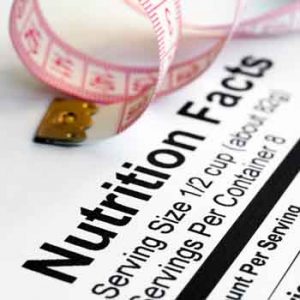
More evidence that low-calorie sweeteners are bad for your health
Studies show that artificial sweeteners can raise the risk of hypertension, metabolic syndrome, type 2 diabetes and heart disease, including stroke.

In our modern society we have a food addiction – and it’s not the one you think.
We are addicted to pretty packages, to the bright colours and exaggerated claims, and it is ruining our health.
I was reminded of this recently when a study came out showing that so-called ‘healthy’ breakfast biscuits contain unacceptable levels of added sugar.
The group Action on Sugar analysed dozens of products advertised to the time poor among us as a quick way to have a nutritious breakfast.
It found that:
Two products from discount supermarket Lidl topped the chart containing 14.5g and 15g of sugar respectively, equivalent to four teaspoons of sugar.
Six different belVita products contained between 12.9g and 14g of sugar, while products from Aldi and McVities also made up the top 10.
Of course, you wouldn’t know that from the labels on these products, which focus on ‘healthy’ whole grains instead of the other less healthy and certainly not ‘whole’ ingredients.
Misleading information
According to Action on Sugar the label misleads in other ways too.
For example, BelVita puts the nutrition information for one biscuit on its front of pack nutrition labelling – but each pouch contains 2-4 biscuits, which most of us would assume is one serving.
I’ve spent a large proportion of my professional life reading labels and I find this kind of thing very frustrating. I understand the time pressures we are all under. I understand, also, that not all ‘packaged’ food is necessarily bad.
But I also know that if more of us focused on buying foods that didn’t require complicated packages, labels, serving suggestions and often distorted nutritional information, we probably wouldn’t be experiencing the huge rise in non-communicable diseases (NCDs) such as diabetes, heart disease and obesity which are overtaking the developed – and increasingly the developing – world.
Organic consumers are different
The good news is that not all of us are so trusting of packaging and labels.
An interesting Dutch study recently found that while shoppers in discount supermarkets judge the healthiness of a food by the colour of its packaging, organic shoppers are more savvy and less likely to be swayed by such trickery.
The researchers asked shoppers in discount chain Aldi and organic supermarket Ekoplaza to evaluate two identical yoghurts: one in a red package and one in a green package.
Green coloured packaging is increasingly used by brands to signal goodness – witness the new green Coke Life packaging.
The Aldi shoppers perceived the green packaging to signify a healthier option (though the colour of the package did not convince them the product tasted better). But the organic supermarket shoppers were less easily swayed by the packaging.
What’s the difference? The researchers suggest that “…arguably, in a green environment, products are considered similar in terms of healthiness, whereas in a discount environment, variations between products in terms of healthiness are much larger, leaving more room for perceptions to be influenced by packaging design.”
But I think it’s more.
If you shop organic you are already used to negotiating your way through the maze of modern food labels. You may already be more concerned about clean, fair, ethical foods and more discerning in how you choose food.
You may also have had to engage in conversations with neighbours, family members, supermarkets or restaurants about food ingredients and provenance. That means you are a conscious shopper who has had to think through the reasons for your preferences.
Consciousness is the key, and the more of us who are conscious of food, where it comes from and what it contains, the quicker we can get away from the problems of packaging,
Pat Thomas, Editor

Please subscribe me to your newsletter mailing list. I have read the
privacy statement